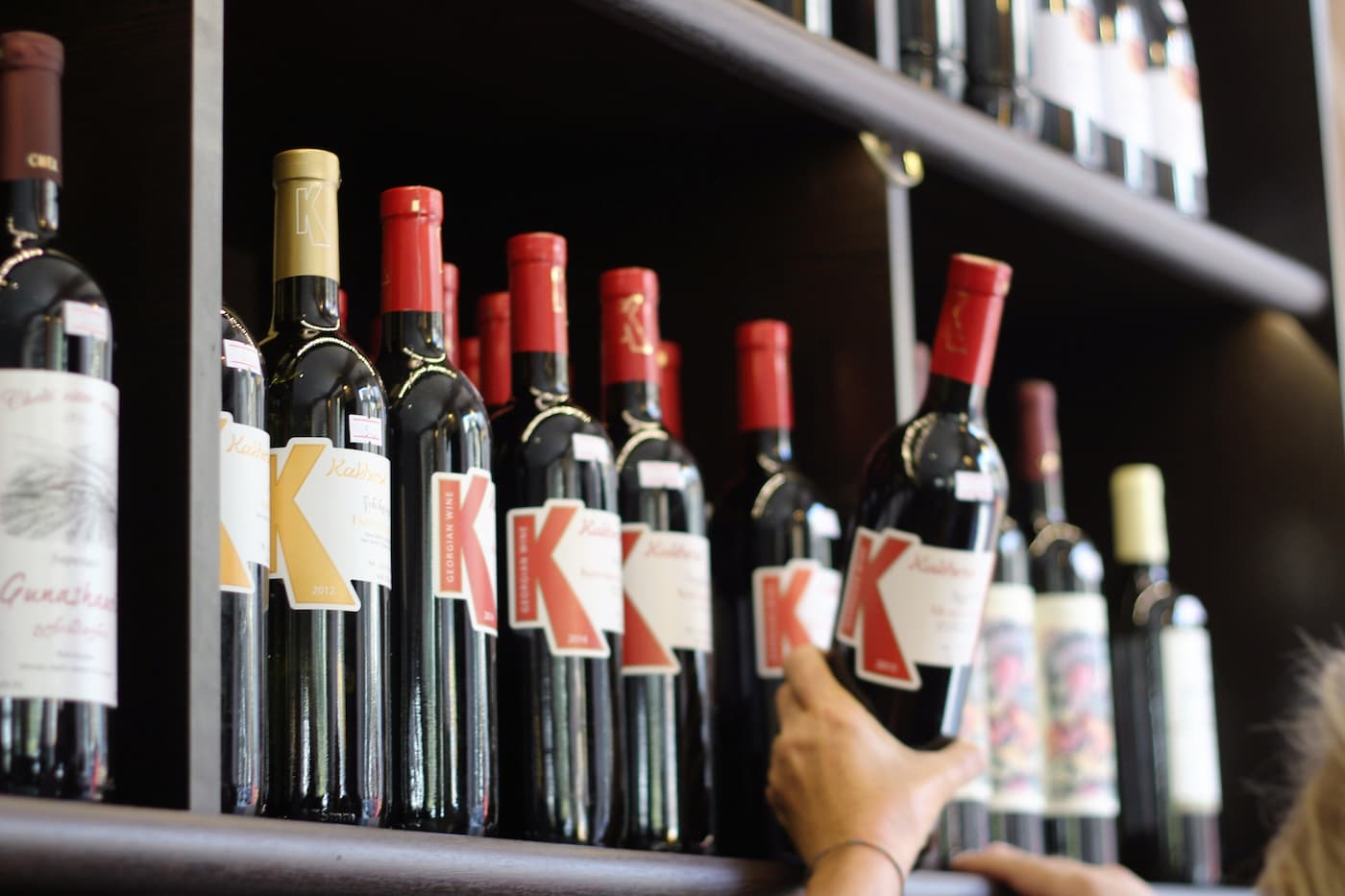How to ship alcohol: Navigating the regulatory maze and courier options
Editorial Team
8 min read
Many folks like their drink of choice on the rocks. When it comes to facts about alcohol, however, they are best served straight up.
If you own a winery, craft beer business, or distillery, or are brewing up plans to get into the industry, here are two facts that might fascinate you:
- Alcohol is big business in the U.S. Sales to consumers were projected to reach $283.8 billion in 2023, according to Statista, a market insights and consumer data platform. That total includes alcohol bought at retail locations, such as all types of stores and gas stations; at bars, hotels, restaurants, and similar businesses; and from online orders for at-home consumption.
- Online sales, which surged during the pandemic, are expected to continue growing into the foreseeable future. The IWSR, a firm focused on accumulating data and providing market intelligence for the alcohol industry on a global scale, projected a compound annual growth rate of 11% for the U.S. alcohol market for online sales for the period from 2021 to 2026.
To capitalize on both the booming liquor business AND consumer demand for online options, you will need an understanding of how to ship alcohol directly to consumers (DTC) in compliance with federal, state, and local regulations. Requirements also may differ among the most well-known couriers. The bottom line for small and midsize businesses planning to ship alcohol DTC is that you will have to do some homework first … or hire a legal team to figure it all out. That holds true whether you plan to sell alcohol exclusively online or in tandem with a brick-and-mortar location.
Is it legal to mail alcohol?
The answer to the question as stated depends on how strictly you are interpreting “mail.” If you are referring specifically to sending alcohol in the mail through the U.S. Postal Service, the answer is no. It is illegal to mail intoxicating liquors, period — including beer and wine. In fact, there are very few and very limited exceptions for shipping anything with alcohol as an ingredient. A few examples of allowable products include mouthwashes, cold remedies, and cooking wine that contain alcohol, which can be mailed if they conform to IRS and FDA requirements. That’s not exactly what you had in mind, but alcohol can obviously be shipped by other couriers, subject to extensive regulations.
Shipping alcohol within your state
If you’ve hatched your plan to open a winery, a microbrewery, a small batch distillery, or similar, getting your products into the hands (and glasses) of as many customers as possible is probably a goal. Many of your first customers may be local based on familiarity with your operation, so knowing state and local laws will be important to help you determine whether you can ship directly to consumers, what you can ship, how much, how it must be labeled, and other considerations.
Summarizing the laws to which you will be subjected is challenging—the list may be longer than the ingredients list for your best craft beer or smoked whiskey recipe. Not only do restrictions vary by state, but different laws apply to different types of alcohol. For instance, only 11 states and Washington, D.C. allow DTC beer shipping. However, DTC wine shipping is allowed in 48 states and the District of Columbia. Utah and Mississippi are the exceptions that don’t allow DTC wine sales. However, to further illustrate the variances, Mississippi does allow individuals to buy up to 10 cases of wine per year from a winery and have it shipped to a permitted package store instead of to their homes. And while Delaware allows DTC wine shipping, the purchaser must order on-site at the winery vs. ordering online.
The legislative landscape is always changing, too. An Oklahoma bill calls for potentially stifling changes to the permitting process and reporting requirements for DTC shipments from wineries. By contrast, there’s a movement in Illinois to loosen restrictions and even the playing field with wineries by allowing DTC shipping of distilled spirits. More information to help you stay in compliance can typically be garnered from state and local liquor commissions and/or state revenue departments.
Shipping alcohol across state lines
What states can you ship alcohol to other than your home state? As is the case with intrastate shipping, the answer varies based on what type of alcohol is being shipped and also the destination. Even if your state allows DTC shipments of alcohol, that doesn’t necessarily mean you can deliver your products directly to consumers in other states. Per the Liquor Law Repeal and Enforcement Act, the laws of the state where the product would be received are applicable, not the state where the producer is operating. So, if you have opened a winery in California, where DTC shipping is allowed, you still can’t ship wine to Utah, for instance. The Alcohol and Tobacco Tax and Trade Bureau (TTB) administers the law.
The National Conference of State Legislatures has broken down the specifics of DTC shipping from out-of-state manufacturers. That information can be found here.
Shipping alcohol—by courier
While the U.S. Postal Service does not ship alcohol—with the exceptions noted above—these couriers do:
FedEx: Businesses with the appropriate alcohol licenses can ship wine direct to customers in states where it’s legal, as long as they are enrolled in the FedEx alcohol shipping program. Beer and spirits, however, can only be shipped from one licensee to another — not direct to consumers. FedEx does not allow consumers to ship alcohol.
UPS: Whether the shipment involves beer, wine, or spirits, UPS only accepts packages from shippers who are licensed under applicable law and who have entered into a contract with UPS for the transportation of that specific type of alcohol. Such shipments are only allowed among and between selected states. For instance, beer shippers must have a valid retailer or brewery license in the state in which they are based and also may have to acquire a license or permit in the shipment destination state.
Also notable: when shipping alcohol through a courier, expect a surcharge in addition to the usual shipping costs for businesses.
Packing tips
When packaging alcohol for shipment, there are two primary considerations: compliance with regulations and protection of the product. Any package obviously must have a shipping label. Again, specifics may vary depending on the shipment’s point of origin and destination but expect at the very least that the label will have to specify that the package contains alcohol. There may be a requirement to state on the label that a person 21 or older must sign for the shipment. An Illinois statute, for example, reads “The shipping container of any wine shipped under this section shall be clearly labeled with the following words: “CONTAINS ALCOHOL. SIGNATURE OF A PERSON 21 YEARS OF AGE OR OLDER REQUIRED FOR DELIVERY. PROOF OF AGE AND IDENTITY MUST BE SHOWN BEFORE DELIVERY.” This warning must be prominently displayed on the packaging.”
Couriers may have packaging guidelines, as well. For example, FedEx prefers a corrugated outer container with polystyrene as the inner packaging. It will not accept shipments that use packing “peanuts,” wadded up paper, or corrugated partitions as inner packaging.
Using acceptable inner packaging helps prevent damage, especially when the alcohol is in glass bottles. Another commonsense practice is to use packing tape to reinforce the packaging.
Integrating logistics with a POS system
Since selling alcohol also involves collecting payments and keeping track of how much product is being shipped and how much you still have stocked, having a POS system with inventory management capabilities and other helpful features makes sense. Clover offers solutions that can provide those features, plus business analytics, customer engagement tools, and more to enhance your business operations.
Shipshape for growth
If your business isn’t already shipping directly to consumers, the growth opportunity can be exciting. Just remember that you have to follow the regulations set by the Federal Alcohol and Tobacco Tax and Trade Bureau, your state revenue department, and any state and local alcohol and beverage control bodies in terms of compliance. Cheers!
Other articles you may like
- The bar POS system that keeps the drinks flowing and customers happy
- How to conduct alcohol server training: A guide for restaurants and bars
- How to start a successful drive-thru beverage business
- How to do bar inventory in 7 simple steps
This information is provided for informational purposes only and should not be construed as legal, financial, or tax advice. Readers should contact their attorneys, financial advisors, or tax professionals to obtain advice with respect to any particular matter.
Related Posts
What is a restaurant employee training manual and why do I need one?
Understanding the basics: The 4 types of inventory for small businesses
Popular Topics
Stay in touch
Sign up and learn more about Clover.
Thank you for your subscription!
More posts about starting a small business
eBook





